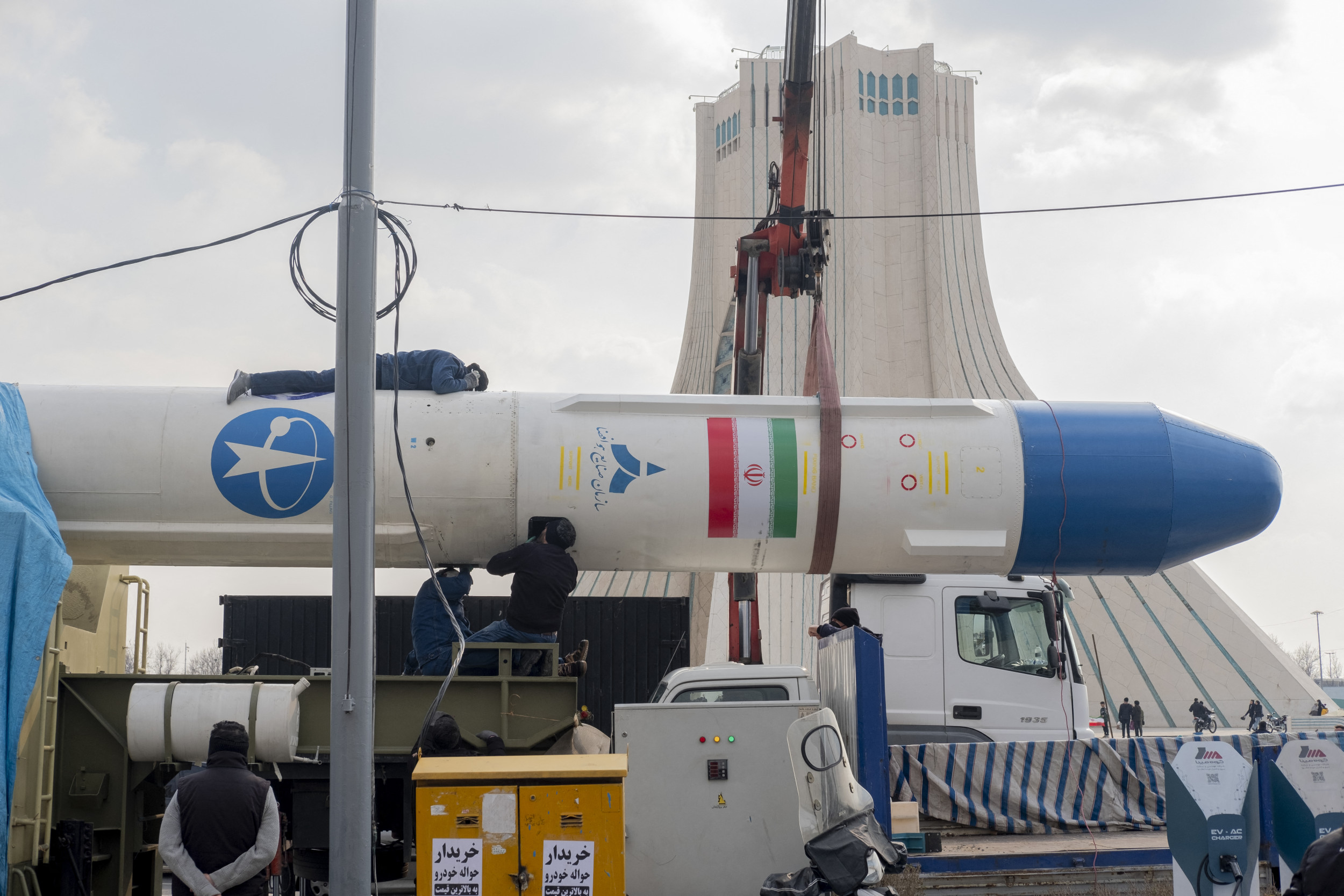Iran Will Seek Nuclear Weapons if US Attacks, top official says: "No Choice"

By Amir Daftari is a Newsweek reporter based in London, specializing in global affairs with a focus on the Middle East. He joined Newsweek in 2024 from the United Nations and has previously worked at CNN International. A graduate of the London School of Economics, Amir has received multiple awards for his reporting, including his coverage of the Arab Spring and the 2021 Iranian elections. You can get in touch with Amir by emailing [email protected]. Languages: English and Farsi Amir Daftari News Reporter Iran "will have no choice" but to seek nuclear weapons if attacked, an adviser to Supreme Leader Ayatollah Ali Khamenei has warned. The statement comes in response to U.S. President Donald Trump's threat to bomb Iran if it does not agree to a new nuclear deal.Newsweek has reached out to the State Department and Iran's foreign ministry for comment.Why It MattersRising tensions between Iran and the U.S. have reignited concerns over military conflict. Since taking office, Trump has reinstated his "maximum pressure" campaign, which has led to the reimposition of strict sanctions in order to weaken Iran's economy and stop its nuclear program. While Tehran has denied seeking nuclear weapons, recent warnings signal a growing risk of escalation. Former Iran's parliament speaker Ali Larijani speaks with media after registering his name as a candidate for the June 28 presidential elections at the Interior Ministry in Tehran, Iran, Friday, May 31, 2024. AP Photo What To KnowAli Larijani, a senior adviser to Khamenei, told Iranian state television that Iran does not seek nuclear weapons but could be forced to pursue them if threatened."We are not moving towards (nuclear) weapons, but if you do something wrong in the Iranian nuclear issue, you will force Iran to move towards that because it has to defend itself," Larijani said. He cautioned that any U.S. or Israeli military action would push Tehran toward reconsidering its nuclear stance.Last week, U.S. Director of National Intelligence Tulsi Gabbard, said that Washington does not believe Iran is developing nuclear weapons but noted a weakening taboo in Iran against publicly discussing them.Trump's ThreatTrump's remarks over the weekend intensified the standoff. "There will be bombing" if Iran does not agree to a nuclear deal, he told NBC. Trump also threatened to impose "secondary tariffs" on Tehran.Iran's Supreme Leader dismissed the warnings. "They threaten to do mischief," Khamenei said during a speech on Monday. "If it is carried out, they will definitely receive a strong reciprocal blow."Indirect NegotiationsLast month, Trump said he wrote to Khamenei urging nuclear talks and warning of possible military action. Iran's foreign minister confirmed that a response was sent back to Washington through Oman. He ruled out direct talks under pressure but hinted at the possibility of indirect negotiations. A large missile is displayed near Azadi Tower as part of the 22 Bahman celebrations in Tehran, Iran, on February 10, 2025. The anniversary marks 46 years since the Islamic Republic's founding, amid increasing public... Sasan/Getty Images What People Are SayingAli Larijani, adviser to Khamenei, said on Iranian state TV: "Iran does not want to do this, but will have no choice. If at some point you (the U.S.) move towards bombing by yourself or through Israel, you will force Iran to make a different decision."Trita Parsi, Executive Vice President of the Quincy Institute for Responsible Statecraft told Newsweek: "The war of words are heating up between Washington and Tehran as Trump is threatening full-scale bombing and Tehran warns of swift retaliation. Neither side wants war and both sides appear to treat this as a prelude to negotiations. However, unless realistic bargaining positions are adopted by both sides and a discarding of maximalist approaches, this escalatory rhetoric may trap them both in a war that neither side wants."What Happens NextIran's foreign ministry has summoned the charge d'affaires of the Swiss embassy, which represents U.S. interests in Tehran, following Trump's remarks. With the diplomatic impasse continuing, the question remains whether Washington will escalate its threats or pursue alternative negotiations. Newsweek is committed to challenging conventional wisdom and finding connections in the search for common ground.\


